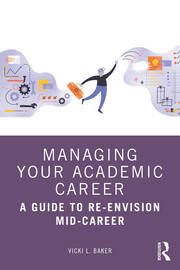
Learn as much as you can about your job to help advance your career. This will make you an expert in your field and increase your trust among your colleagues. You'll become a trusted source of information and be promoted to a higher level.
Accepting new responsibilities
Accepting new responsibilities shows your manager that you are serious about the job and can handle the workload. It shows that your passion for the project is evident and that you can motivate others. It is important to meet with your manager if you are interested in taking on new duties. It is a good idea also to make sure you have the right talking points ready and think of ways to show your willingness for the new challenge.
It is a great way for you to grow your career. You might find new tasks and responsibilities exciting and challenging. It is a sign that your manager believes you can do more and has faith in you. This can help you to see a brighter tomorrow.

The building of a professional networking
The best way to get insight and access to resources for career progression is to build a professional network. You may also find it useful to have someone to recommend you for a job. Networks with many roles are more effective than those that only include key stakeholders and decision makers. You can also get information about workplace politics and dynamics from people you trust.
It is important to first identify the people you wish to reach out to to build a network. These people could be former professors, friends from the past, or fraternity members. It is also beneficial to maintain contact with these people for the long-term. Your network will grow and change throughout your career. Your network never stops growing and evolving. You never know who might be a world leader or business entrepreneur, so make sure you have meaningful relationships at all levels.
Developing emotional intelligence
People who are highly skilled at emotional intelligence are able to control their emotions and make intelligent decisions. They are willing to acknowledge their strengths and weaknesses and work to improve on them. Self-awareness and self-regulation are the key elements of emotional intelligence. The key component of emotional intelligence is self-regulation. They are not quick to act and will take the time to think about their actions before they take action. They have the ability and strength to stand by their convictions, as well as the ability to say no.
Emotional intelligence is a valuable tool in the workplace. It contributes to happier employees and higher performance. TalentSmart discovered that people with high emotional intelligence were more likely to get successful jobs. A study by TalentSmart also revealed that employees with high emotional intelligence performed better and were given higher job evaluations. Teachers with higher emotional intelligence were more successful in their job.

After completing your advanced degree
An advanced degree can increase your career prospects in many ways. A graduate degree can enhance your reputation and add prestige to your resume. Some people find that having a doctorate degree increases the chances of landing a great job. Some may choose to pursue an advanced degree simply because they are passionate about a topic and want more information. In either case, earning an advanced degree will improve your professional image and your earning potential.
If you are stuck in your current position, pursuing an advanced degree can give you the boost you need to make your way up the corporate ladder. A master's degree, for example, can help you earn a better salary and take on more responsibility in your company. Alternatively, a doctorate degree can allow you to teach at a higher level.